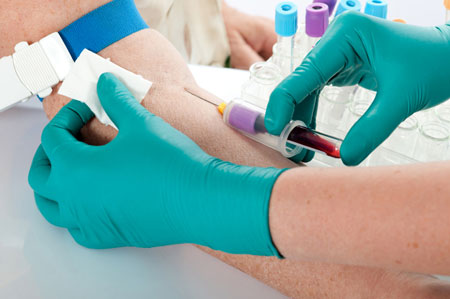 This is an article about having anaemia during pregnancy. Mary was dragging herself around. It was her fourth pregnancy in six years and she was clearly a busy woman. She dismissed her tiredness as part of the reality of having three young children to care for whilst growing a baby. When she came to see me in my clinic she leant her head against the wall and in a breathless voice said ‘I’m so exhausted.
This is an article about having anaemia during pregnancy. Mary was dragging herself around. It was her fourth pregnancy in six years and she was clearly a busy woman. She dismissed her tiredness as part of the reality of having three young children to care for whilst growing a baby. When she came to see me in my clinic she leant her head against the wall and in a breathless voice said ‘I’m so exhausted.
I just don’t know how I am going to be able to manage a new baby’. She then promptly burst into tears. Over a box of tissues we talked about many things including her diet and medical history. I then examined Mary, telling her I thought she was anaemic and that I wanted to do a blood test right away. The next day I rang her at home with the results.
Mary had low haemoglobin and barely any iron stores left in her blood. I told her to go out straight away and get some iron tablets from the chemist and start talking them. Two weeks later when she returned to my clinic she had a spring in her step and smile on her face. ‘I can’t believe how much better I feel’ she said. ‘Four children, no problem! I might even have another baby after this one!’
I have lost track of how many times I have come across women like Mary. Moreover, I have seen women treated for depression because they were so tired and asthma because of extreme breathlessness when a simple blood test could have revealed the most common blood disorder women face in pregnancy, anaemia. Not only does anaemia make you feel terrible, it can be dangerous if it remains undiagnosed and untreated.
Changes to blood in pregnancy
During pregnancy, there are amazing changes in a woman’s body. These changes are nature’s way of helping women to grow healthy babies whilst remaining healthy themselves. One of the most dramatic changes occurs in a woman’s blood. The amount of blood circulating in a woman’s body increases by fifty percent during pregnancy. Most of this increased volume is made up of plasma, which is the liquid that blood cells are suspended in. While red blood cells also increase in pregnancy they don’t increase as much as the plasma. This basically makes the blood seem more diluted in pregnancy.
Studies indicate that this dilution effect, commonly seen as a slight drop in haemoglobin, is a good sign. Women that show this response are less likely to have underweight babies, preterm births and high blood pressure in pregnancy. The challenge for women and health professionals is to know when a drop in haemoglobin is a normal healthy response and when it is not.
Anaemia
By far the most common blood-related problem pregnant women face is anaemia. It is quite normal to see haemoglobin (a measure of anaemia) decline in pregnancy without an effect on the woman due to the dilution effects already described. Haemoglobin, the protein found in red blood cells, transports oxygen in the blood. It is essential for keeping us alive and healthy. Anaemia occurs when there is a lack of red blood cells due to a reduction in their production or an increase in their loss.
The most common cause of anaemia is that not enough red blood cells are being made to meet the needs of the baby, and the mother is running low on the required iron and vitamins. The World Health Organisation defines anaemia as haemoglobin of less than 110 but this is not a reasonable level on its own for many pregnant women. Generally we investigate further if the woman is showing symptoms of anaemia or her haemoglobin has dropped below 105.
Red blood cells are made in your bone marrow and last about four months before they disintegrate and are replaced by new red blood cells. In order for your body to produce blood cells you need an adequate supply in your diet of iron, vitamin B12 and folic acid. If one or more of these is lacking anaemia will eventually develop. When the supply of red blood cells drops significantly you will usually get symptoms such as paleness and increased tiredness.
Tiredness, however, is a common complaint during pregnancy and does not by itself indicate anaemia. When anaemia worsens women can suffer from dizziness, breathlessness and even heart palpitations, headaches and chest pains if the anaemia is severe.
Diagnosing anaemia
Anaemia is often detected through routine blood tests done during pregnancy Blood tests are done during the first antenatal visit and then again at around 28 weeks of pregnancy and 36 weeks of pregnancy. The blood test results describe the red blood cells in detail so we can tell whether you are likely to be anaemic and advise further tests that look at your stores of iron. Iron deficiency is the most common cause of anaemia in pregnancy worldwide.
Preventing anaemia
A woman needs twice as much iron when pregnant. This is an increase from fifteen milligrams a day to thirty milligrams a day. The best way to prevent anaemia is to make sure you have a balanced diet rich in foods that are high in iron, such as red meat, wholemeal bread, eggs, green leafy vegetables and dried fruits. To help your body to absorb the maximum amount of iron from your diet you need vitamin C. This can be obtained from oranges, lemons, limes and raw vegetables. It is important to talk to your midwife or doctor early about diet during pregnancy and whether or not you may need iron supplements.
If you are not pregnant yet, or have had a baby and are planning to have another one, you can ask your general practitioner to do a blood test that will determine if you are anaemic. This will enable you to boost your iron stores before embarking on pregnancy. Women are more likely to suffer from anaemia than men because after each menstrual period women’s iron reserves are drawn on. This is also the case with each pregnancy especially if they are close together. Some studies indicate one in ten women are low in iron even before pregnancy and one in five once pregnant.
A lack of folic acid and/or vitamin B12 can also lead to anaemia. With the increased awareness around folic acid this is getting less but folate deficiency is still the second most common cause of anaemia in pregnancy.
Treating anaemia
The first essential step in treating anaemia is to make sure your diet has plenty of foods rich in iron. While iron supplements can be taken they should not be done so without also improving your dietary intake of iron, as this is the best way to obtain iron.
Iron supplements, if they are needed, are easily obtained over the counter in chemists. There are many different brands and they contain different amounts of iron. Ask your midwife or doctor which iron tablet will be best for you. The type you are advised to take will depend on how severe your anaemia is and whether you suffer problems like constipation as some forms of iron tablets make this worse. Many pregnancy multivitamins also contain iron but if you are very anaemic they will not be sufficient.
There is no evidence that if a woman’s diet is healthy and balanced she needs to take routine multivitamins. They are often very expensive and most will end up in the toilet bowl in the form of brightly coloured urine! Folate is the one exception. All women planning a pregnancy or are pregnant should take 400 micrograms of folic acid daily before becoming pregnant if possible and for at least the first twelve weeks of pregnancy. Folic acid is needed for the development of the baby’s spinal cord and general growth.
Folate deficiency if diagnosed as the cause of anaemia is easily rectified by taking a high dose of folic acid. Vitamin B12 also can be a cause of anaemia. As vitamin B12 is bound to animal protein it is more commonly found in vegetarians. Injections of vitamin B12 can rectify this deficiency. Sometimes you can have a combination of a couple of different causes of anaemia. Midwives and doctors are used to looking at blood test results and deciding what to investigate further and how to treat the particular type of anaemia diagnosed.
Side effects of treatment
Constipation and sometimes diarrhoea are common side effects of taking iron tablets. Women can get generalised stomach upset and discomfort as well, such as nausea, heartburn and stomach pains. Some studies indicate nearly half of all women taking iron tables report side effects. Side effects are the most common reason women will cease taking iron tablets. If you are advised to take an iron tablet and it disagrees with you, rather than ceasing it ask your health professional to suggest a gentler form. There are many types of iron tablets and some herbal preparations that are also gentler on the stomach.
We usually recommend you take iron tablets at night just before going to bed, ideally with a glass of orange juice to give you the vitamin C needed to help absorption. Meat also seems to enhance the uptake of iron as well as containing iron. Don’t take iron with tea or coffee as this lowers the body’s ability to use iron. It is important for women to be aware that iron will cause their bowel motions to be a dark colour. This is quite normal. Urine can also seem a much brighter colour as well.
Iron supplements should only be taken when there is a deficiency. Taking iron can inhibit the absorption of zinc, which is another essential element. Increased haemoglobin is associated with other pregnancy problems such as preeclampsia (high blood pressure in pregnancy). Iron tablets can also be lethal to small children if ingested. That’s why it must be kept out of reach and locked up with other medications.
The dangers of anaemia
The greatest physical danger associated with anaemia is the mother’s inability to withstand blood loss during birth. If you are already running low on your iron stores and then lose a large amount of blood this can put you in danger of not having enough oxygen transported around your body. This is why anaemia needs to be detected as early as possible. This is to give you time to build up your iron stores. Haemoglobin levels usually return to normal between 5-12 weeks following birth. If, however, you had a large blood loss or were quite low in iron before the birth this can take longer.
Breastfeeding can put added demand on your iron stores. You will need to discuss with your midwife or doctor whether you should continue to take iron tablets or indeed commence them after the birth. Women who lose a large amount of blood during the birth (postpartum haemorrhage) are given iron tablets. They have to take it for several weeks after the birth. Having low haemoglobin can also make mothering so much harder and increases the risk of women feeling depressed.

 Wish List
Wish List
Recent Comments